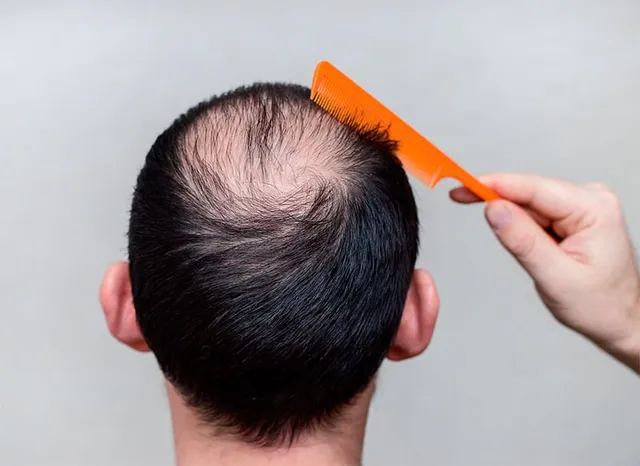Are hair transplants worth it?
This is perhaps the most often-asked question concerning hair transplant surgery. Perhaps just before or immediately following “how much will it hurt?” (to which the straightforward answer is, shockingly, not nearly as much as you might assume). The other most common question is ‘is a hair transplant worth it?’
Hair transplants are definitely worth it when you consider the effects on confidence, appearance, and the long-lasting nature of the treatment. Then we may consider how big of an influence it will have on our lives, how long it will take to recover, and what the end outcome will look like.
Hair transplantation may be rather costly, costing thousands of pounds or dollars. Additionally, the treatment is time demanding, requiring around eight hours to perform and up to a year to completely display the effects. Then there are a couple of weeks of recuperation to consider, during which you would typically be recommended to relax, take time off work, and avoid intense activity (which, when written down, sounds beautiful!).
Having said that, we believe that hair loss surgery is completely worth it. Every day, we witness pleased and satisfied patients. However, we will only conduct hair loss surgery on patients who have a reasonable possibility of success. We’d always be candid; if we didn’t believe a hair transplant would be a good fit for you, we wouldn’t recommend it.
If your hair loss disturbs you, saps your self-esteem, diminishes your confidence, or otherwise interferes with your life, and you are a candidate for one, a hair transplant is almost certainly well worth it.
Celebrity Hair Transplants
You simply have to look at sports players and other celebrities who have undergone hair transplants to see how natural they may seem when performed professionally. Wayne Rooney’s hairline is maybe the most famous in the world. He underwent a hair transplant in 2011 and confirmed the rumours on Twitter:
To all my fans, I’d want to confirm that I’ve undergone a hair transplant. Why not, I was becoming bald at the age of 25. I’m delighted with the outcome.
And, while we believe it is unjust for someone to have to defend their decision to have a medical treatment in public, he instantly, and in 140 characters, made hair transplants popular. Since then, a slew of celebrities have openly admitted to having one. Additionally, it is rumoured that British chef Gordon Ramsay, Spanish tennis legend Rafa Nadal, and Irishman Louis Walsh, a judge on the UK’s X Factor, have all had hair transplantation.
We cannot tell if they have or have not, however Calum Best, an American model and actor, has undergone three hair transplants and told the UK Mail Online website:
These surgeries have dramatically altered the course of my life. They’ve boosted my confidence and let me to style my hair anyway I want. The fact that I retain my hair assists me in obtaining film jobs.
While we may not all be professional footballers or actors vying for parts as hirsute males, maintaining a full head of hair does appear to enhance confidence.
THE BENEFITS OF SURGERY FOR HAIR TRANSPLANTATION
Perhaps the main reason to consider a hair transplant in Turkey is for the benefits it will bring in terms of appearance and self-confidence. Hair loss can be psychologically devastating, so any treatment that offers an alternative to baldness is worth a closer look. A hair transplant also has immediate visual effects; after just one session you’ll notice some difference in the thickness of your hair, and within three months the full extent of results should have become visible.
HIDDEN BENEFITS OF A HAIR TRANSPLANTATION
While having surgery on your head may not be everyone’s idea of fun, there are some hidden benefits of having surgery. After someone has undergone a hair transplant, their confidence is improved as they no longer have to worry about concealing their thinning hair or balding scalp. Having surgery also allows you to choose the style of your new hair, and often makes it possible to achieve styles previously not thought possible with natural hair growth alone – two-tone hair for example, or dreadlocks.
LONG TERM BENEFITS OF A HAIR TRANSPLANT
As well as the immediate result, a hair transplant long-term can help to prevent future thinning and baldness. Hair transplants work by increasing the number of hairs you have and improving their appearance, so if you were one of those lucky people with thick hair before your surgery, then this benefit is there for keeps. If like most men (and women!), however, your genetic predisposition towards baldness was too powerful to resist despite all your best efforts at preventing it, then ongoing sessions may be able to slow down its progress or reverse some of the damage already done.
OPTION TO USE NATURAL HAIR GROWTH OR SURGERY
You don’t have to go for a full hair transplant should you decide not to. Follicular Unit Extraction (FUE) is another option that entails taking individual hairs from the back and sides of your head, but leaving the donor area intact. This may be an attractive proposition for those who aren’t ready for a radical change yet, or those interested in trying out the treatment before committing fully.
OPTIMIZING RESULTS WITH SIDE-EFFECTS TREATMENT
It’s worth considering the long-term affects of a hair transplant and how you can reduce or eliminate any side effects associated with surgery. First, if you do have your surgery carried out by an accredited clinic like UK Smiles, chances are they will use local anaesthetic to minimise any pain and discomfort during the procedure – which is another benefit in itself! If your results aren’t exactly what you’d hoped for from treatment though – either because it wasn’t enough to completely restore your former head of hair, or due to poor aftercare – then don’t despair; some clinics offer a complementary touch up session free of charge at a later date.
RANGE OF APPEARANCE OPTIONS AVAILABLE
Perhaps the most crucial aspect of deciding whether or not to have a hair transplant is choosing which appearance option will best suit your needs. In terms of achieving the fullest and densest head of hair possible, Follicular Unit Transplantation (FUT) seems to be the option that offers patients the biggest improvement in their results. On average, this procedure sees between 2,200-4,000 individual grafts transplanted in one session. However it’s worth noting that while FUT does offer impressive results, due to its invasive nature some people are wary about having surgery carried out on such an intimate part of their body.
For those concerned with having a greater degree of control over their new hair growth though, FUE could be the best option for you. This procedure takes individual hair follicles from the back and sides of your head, which can then be transplanted in any manner or pattern you choose to your balding areas. If a small number of hairs is all you need to make a big difference in someone’s appearance post-surgery, then FUE could also be for you. The more grafts that are taken though, the greater long-term density will result – upwards of 3,000-4,000 grafts are usually required for this method.
Choosing whether to have surgery or not is just one decision to make when considering having a hair transplant. Another important factor is deciding what type of procedure you want; this will depend on several factors, including how much time and
While a hair transplant may be most beneficial in the short term, there are some long term benefits too; having more thick and healthy looking locks can improve your looks and self-confidence over time, meaning that if you don’t like your new hairstyle at first
However, hair transplant surgery is very successful and produces long-lasting, visible, and natural results. Additional advantages of hair transplant surgery include the following:
It frequently works where other hair loss treatments have failed. It is particularly effective for addressing big regions of hair loss.
In comparison to other hair loss treatments, this one may be used in the latter phases of hair loss.
- It generates outcomes that appear look natural.
- Targeted regions of the scalp are possible.
- It is suited for both men and women.
- Once hair starts growing, it will continue to grow.
- Baldness in Males
Male pattern baldness is produced by a male hormone called testosterone being converted in the body by an enzyme called 5-alpha reductase to another male hormone called dihydrotestosterone, or DHT. And because male baldness is associated with testosterone, it is sometimes said that baldness correlates with virility and’manliness.’ This is of little consolation to guys who suffer from anxiety and depression as a result of their hair loss.
Hair transplantation is a personal decision, and we are here to assist you in making that decision. However, despite our ability to address any other question you may have regarding hair transplantation, we are unable to answer the ultimate issue for you – should you get one?
However, we can advise you and propose that you consider the following:
Are you able to finance it – or will it result in unsustainable debt? We do not everyone have pockets the size of celebrities. While having a longer hairline is desirable, if you cannot afford it realistically, it is generally not a smart idea. Instead, establish a hair fund and contribute monthly to it, or if you do take out a loan or a credit arrangement, ensure you can afford the monthly instalments.
Conduct research – do not simply choose the cheapest choice; choose a clinic (like ours!) that has a positive ambiance, pleasant personnel, and competent, experienced surgeons. You should feel at ease and as though your wants and preferences are completely understood. If you want to travel overseas for a hair transplant, which is frequently less expensive, ensure that there is no unbridgeable language barrier.
Inquire about before and after photographs – your selected clinic should be willing and able to provide them so that you can get a sense of how a hair transplant could work for you. Testimonials on clinic websites can also help you gain a sense of the clinic’s atmosphere and processes.
Prepare for the treatment — are you capable of enduring an eight-hour process while awake and experiencing some discomfort? While the top clinics will make every effort to put you at rest and make you feel at peace, hair transplantation is a lengthy procedure. And if you have a medical condition such as diabetes, dealing with it may be much more difficult.
Prepare yourself for a wait – evaluate how long it will take to see visible benefits. It may take up to a year before you get a result that you are completely satisfied with. And, while this is an exciting period, it might feel ephemeral!
Consider aftercare – you may be prescribed a daily oral pill of finasteride (Propecia) or a twice-day topical solution of minoxidil (Rogaine or Regaine) to prevent the natural hair around the transplanted hair from thinning and falling out. These are drugs that must be taken indefinitely (or at least medications for as long as you want to keep your hair for). Within a few months of discontinuing them, your hair will thinning and falling out again.
Consider the potential of further hair transplants in the future — like with Calum Best, one hair transplant is not always sufficient. You may have low hair density or your balding patch may spread (a hair transplant does not prevent hair loss), in which case you may choose to consider a second hair transplant.
Summary
Conducted intelligently with proper care and attention to detail, a hair transplant is a great way of restoring your self-image. However, whilst we do not wish the burden of making this decision on your shoulders alone, it ultimately is yours to make. We hope that through the above points you have at least been given some thought energy as to whether or not a hair transplant might be right for you! If so, feel free to contact us via telephone or email and one of our friendly staff will get back to you within 24 hours.




Thank you for writing this amazing blog. For more information visit My Hair Transplant Clinics